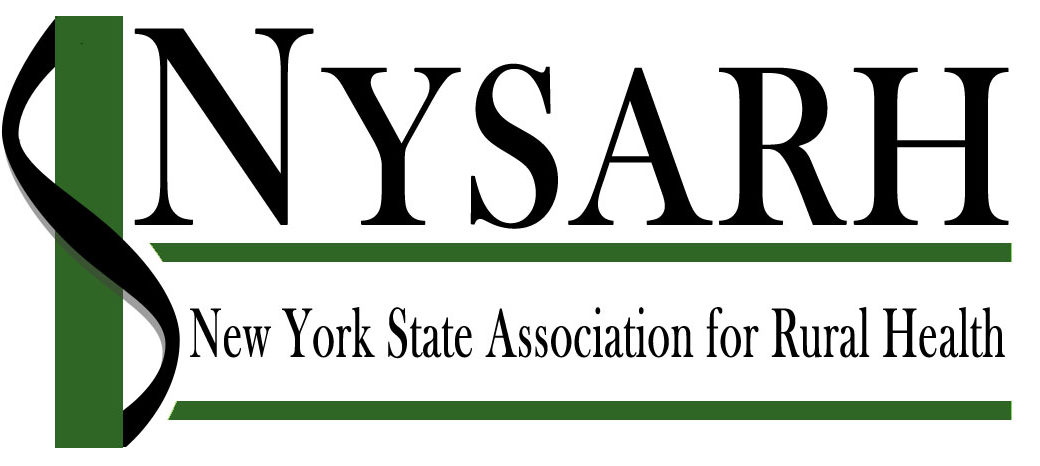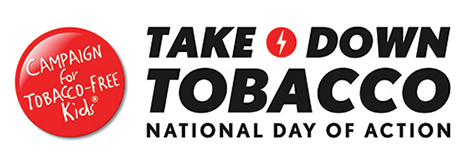NYSARH Newsletter
Winter 2021
Working to preserve and improve health and human services in rural New York State.
January 2021 - March 2021
In this Issue
Strategic Plan 2021-23
The NYSARH Board of Directors formed a Steering Committee to develop a Strategic Plan. A series of planning sessions were facilitated utilizing the Nonprofit Lifecycle™ Model developed by Susan Kenney Stevens, culminating in a virtual Board Retreat in August.
The final Strategic Plan was approved at the January 2021 Board meeting. The primary goals of the plan are: Membership, Collaboration, Advocacy, Education and Capacity Building.
NYS Advocacy
The NYSARH Policy Briefing was held January 26th.
Many thanks to our guest speakers:
- Angelo Santabarbara, Assembly Co-Chair and Hal McCabe on behalf of Senator Rachel May from the Commission on Rural Resources.
- Scott Janke, Director of State Government Affairs, Healthcare Association of NYS
- Jack Marzulli, Schmidt Futures regarding the Reimagine New York Commission
- Robert Martiniano, Center for Health Workforce Studies regarding Rural Workforce
- Sarah Ravenhall, Executive Director, NYSACHO Public Health Perspectives
More information on the Briefing, NYSARH’s Policy Priorities and an Advocacy Toolkit may be found on the Policy page of the NYSARH website.
“Rural health is a movement. It’s time for Capitol Hill to hear your voice.”

NRHA Policy Institute
“Now, more than ever before, is our time to convince Congress that rural heath isn’t just a headline,” says NRHA government affairs and policy vice president Carrie Cochran-
McClain. “Rural health is a movement. It’s time for Capitol Hill to hear our voice.”
The New York delegation to the National Rural Health Association Policy Institute in February included Ann Abdella, Alison Coates and Sara Wall Bollinger.
NYSARH is making appointments with the Upstate members of Congress the week of
February 22 nd . We encourage all NYSARH members to join a meeting with your Congress
member. No special skills or knowledge are required, and materials will be provided.
Please contact Sara at sara@nysarh.org to be included on the zoom call.
More information on federal policy issues can be found on the Federal Policy page of the NYSARH website.
Meeting with CMS
The NYSARH Executive Committee met with the new Region 2 Director of CMS, Tony Jamrozy in January. We plan to meet again in August.
Anthony Jamrozy
CMS, New York Regional Office
26 Federal Plaza, Room 38-130
New York, NY, 10278
Phone: (212) 616-2439

Rural Healthcare Surge Readiness
Dr. Rénee Joskow shared an important resource website with attendees of the January NYSARH/NERHA webinar. This interactive site provides ‘curated’ content specific to different types of providers.
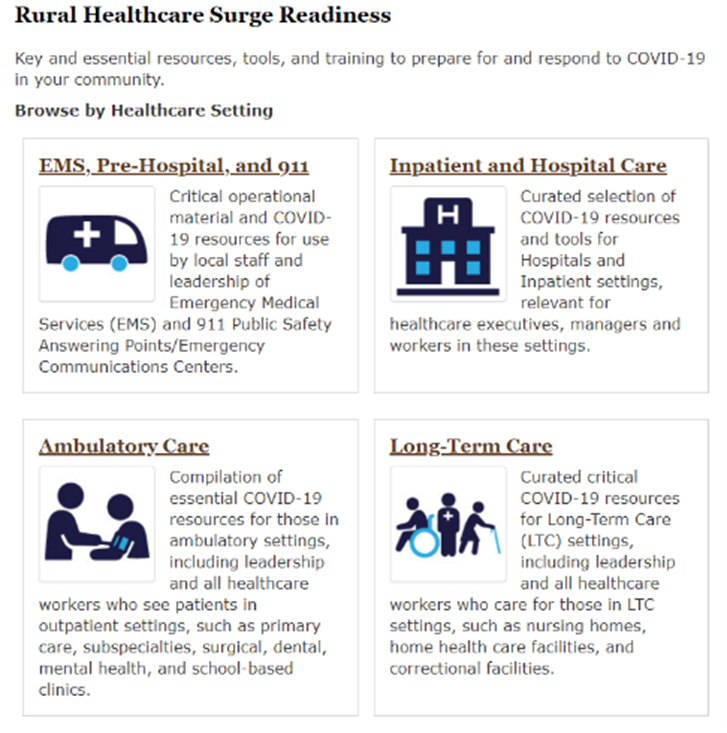
COVID-19 Impacts Mental Health
A strong majority of farmers/farmworkers say the COVID-19 pandemic has impacted their mental health, and more than half say they are personally experiencing more mental health challenges than they were a year ago, according to a new American Farm Bureau poll.
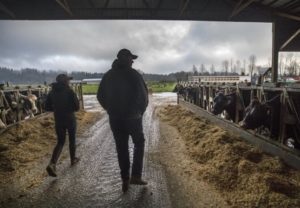 The survey of rural adults and farmers/ farmworkers explores how the pandemic has affected their mental health personally and in their communities, as well as how attitudes and experiences around mental health have changed in rural and farm communities since AFBF conducted its first rural mental health survey in 2019.
The survey of rural adults and farmers/ farmworkers explores how the pandemic has affected their mental health personally and in their communities, as well as how attitudes and experiences around mental health have changed in rural and farm communities since AFBF conducted its first rural mental health survey in 2019.
Nurse Practitioner Diversity in New York State
A recent study organized by NYSARH Member, Kris Stiegler, and her collogues at the Center for Health Workforce Studies (CHWS) examines the racial and ethnic composition of New York’s nurse practitioner (NP) workforce. Researchers examined key demographic, educational, and practice characteristics of the state’s active NPs.
According to the study, Hispanic NPs are underrepresented in the state’s NP workforce, while the percentage of Black NPs is close to the percentage of Blacks in the state’s population. New York City saw the largest disparity between Hispanic NPs (8%) and the local Hispanic population (29%). However in the North Country region, Hispanic NPs nearly mirrored their presence in the regional population.
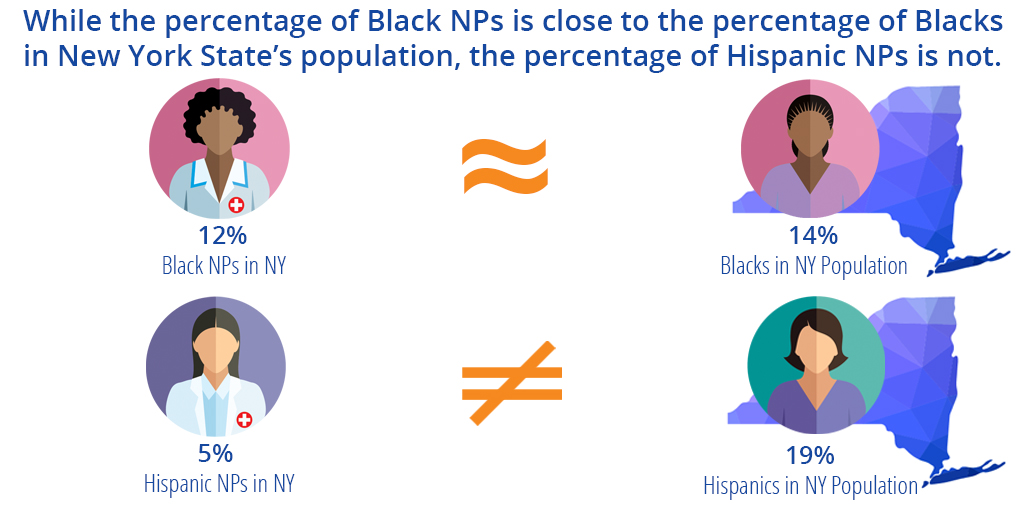
Other key findings from the study include:
- NPs younger than 50 tended to be more racially and ethnically diverse.
- Black and Hispanic NPs complete their NP training at older ages compared to all other NPs.
- Nearly half of Black NPs work in primary care health professional shortage areas (HPSAs).
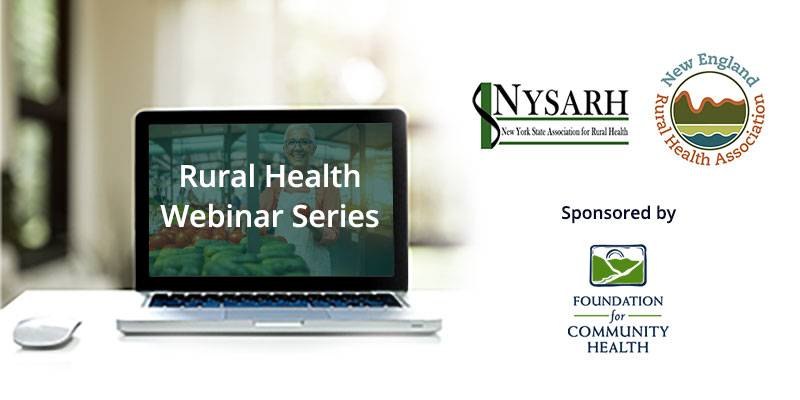
Upcoming Webinars
Thursday, March 18, 2021
Trauma Informed Care
Thursday, April 15, 2020
Community Paramedicine Program and the Impact it Could Have on Rural Areas
Thursday, May 20, 2021
Community Health Worker – Navigator Program
Thursday, June 17, 2021
Domestic Violence & Sex Trafficking for Rural Providers
Participation in the Rural Health Webinar Series is free.
CME and NYS Social Work CE credits are available for purchase after the event ($10.00 fee).
Funding Opportunities
HRSA-21-088
Rural Communities Opioid Response Program – Implementation
Due March 12, 2021
Citizens' Institute on Rural Design
The Citizens’ Institute on Rural Design™ will offer four local Design Workshops that address specific community challenges, and an online Design Learning Cohort program that will allow up to 15 communities.
Due March 12, 2021
Promote Nutrition for Low-Income Households
The Gus Schumacher Nutrition Incentive Program seeks to increase the purchase of fruits and vegetables by low-income consumers participating in SNAP by providing incentives at the point of purchase.
Due March 16, 2021
Nature's Path: Gardens for Good
The Nature’s Path Gardens for Good program supports nonprofit organizations with community garden projects in the U.S. and Canada. The focus is on community gardens that make fresh organic food more accessible in the local neighborhood.
Due March 24, 2021
MEMBER LIST
We would like to thank each member who works diligently to make NYSARH the state’s strongest proponent for rural healthcare.
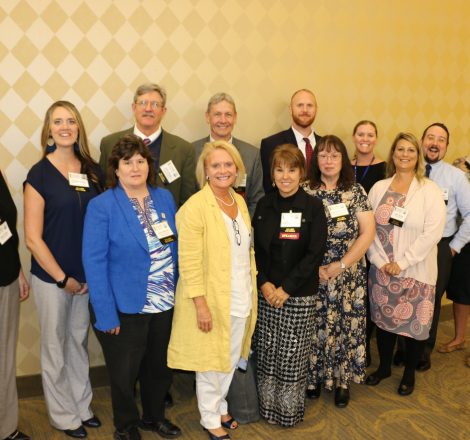
Organization-based Members
- Adirondack Health
- Adirondack Health Institute
- Allegany County Department of Health
- Ardent Solutions
- Brooks TLC Hospital System, Inc.
- Canton-Potsdam Hospital
- Catskill Hudson Area Health Education Center
- Cayuga County Community Health Network, Inc.
- Chenango Health Network, Inc.
- Citizen Advocates, Inc.
- Central New York AHEC
- Common Ground Health
- Community Health Center of North Country
- Delaware Co Rural Healthcare Alliance
- Elizabethtown Community Hospital
- Ellenville Regional Hospital
- Finger Lakes Community Health
- Fort Drum Regional Health Planning Organization
- Foundation for Community Health
- Genesee County Health Department
- Healthy Community Alliance, Inc.
- Health Workforce New York
- Hudson Headwaters Health Network
- Hudson River Healthcare
- Ira Davenport Memorial Hospital/Arnot Health
- Jones Memorial Hospital
- Lake Plains Community Care Network
- Le Moyne College
- M.S. Hall & Associates, LLC
- North Country Behavioral Health Network
- Madison County Rural Health Council, Inc.
- North Country Family Health Center, Inc.
- North Country Healthy Heart Network
- North Country Prenatal Council, Inc.
- Oak Orchard Health
- Planned Parenthood of the North Country NY, Inc.
- Prevention Network
- rprt, LLC
- River Hospital, Inc.
- Rural Health Education Network of Schoharie, Ostego and Montgomery Counties
- Rural Health Network of South Central New York
- S2AY Rural Health Network
- Seven Valleys Health Coalition
- Southern Tier Health Care System, Inc.
- Steuben County Rural Health Network
- St. Lawrence County Health Initiative, Inc.
- Sullivan County Public Health Services
- SUNY Upstate Medical University College of Nursing
- The Chautauqua Center
- The Healthcare Consortium
- The Resource Center
- Tioga Opportunities, Inc.
- Tompkins County Human Services Coalition
- Transitional Living Services of Northern New York
- Upper Hudson Planned Parenthood
- Upstate Family Health Center, Inc.
- UR/St. James Hospital
- Wayne County Rural Health Network
- Wyoming County Community Health System
Individual Members
- Ann Abdella
- Diane Albrecht
- Angela Bashaw
- Amy Carman
- Leanna Cleveland
- Alison Coates
- Anthony D’Agostino
- LJ Dimanche
- William Doyle
- Elizabeth Urbanski Farrell
- Danielle Gagne
- Lisa Gugerty
- Beth Harrington
- Richard Kazel
- Andrew Majka
- Rajiv Pant
- Karin Pantel
- Karen Roach
- Carrie Roseamelia
- Susan Salahshor
- Jennifer Seymour
- Jitendra Singh
- James Skiff
- Helen Stepowany
- Kristen Stiegler
- Christine Veschusio
- Julie Vieth
- Sara Wall Bollinger
- Sherry Wyckoff
- David Yens
- Steven Kroll
- Kenneth Morris
Student Members
- Grace Gugerty
- Cara Kowalski
- Janice Shirley
- Matthew Cheevers
Become a Member
We invite you to join us through advocacy and by advancing initiatives that support a commitment to improving healthcare quality and access.
